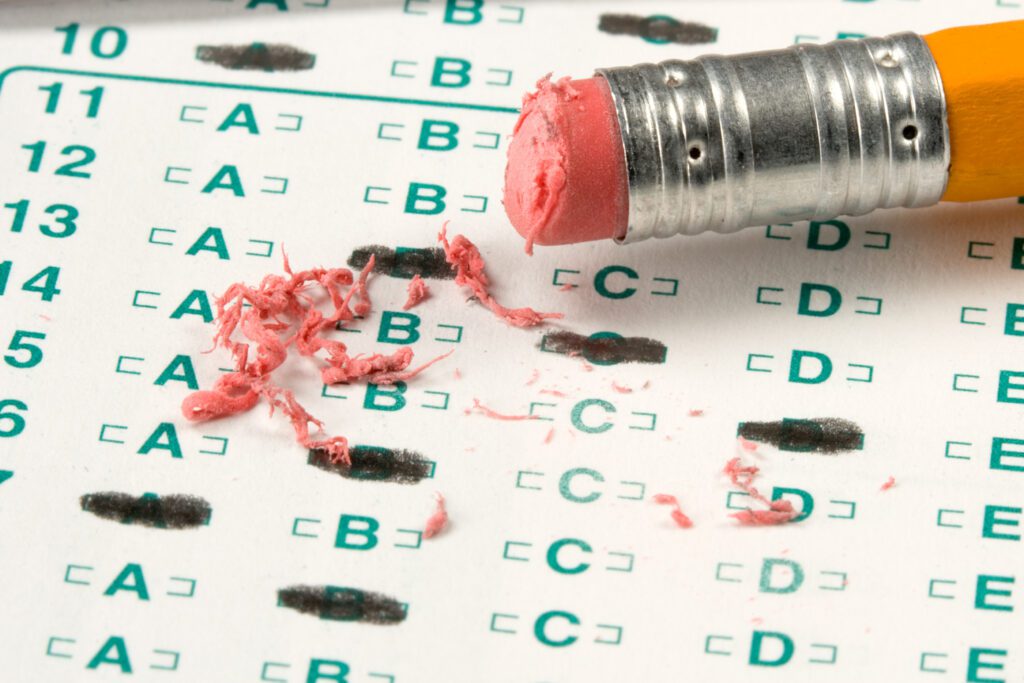Stay-at-home mandates are changing the face of learning. As online learning has become the new normal, students and teachers have questions about how their final exam will work. School systems across the country have either decided to cancel or postpone final exams for secondary school students. It’s only natural for students to wonder how the pandemic will affect their future education.
Countries across the world have made different decisions in regard to school exams during the pandemic. According to The World Bank, GCSE exams in Britain have been cancelled. Hong Kong exams have been postponed and Caribbean CXC exams are modified. This has urged U.S. state leaders and the Department of Education to consider waiving standardized exams for 2021 during these unprecedented times. It’s also begged the question: are final exams really necessary?
Is A Final Exam Necessary For Students?
Final exams serve as a way to measure what students have retained in class over the past few months. However, they can also function as one of the most stress-inducing and daunting tasks for both students and teachers. Exams are tedious for students to grade and often take weeks to complete and hand back to students.
This is likely to be even more taxing during COVID-19. Educators design exams to evaluate student learning, growth and overall academic performance at the end of the project, unit or semester. According to the Glossary for Educational Reform, assessments are based on the following criteria:
- Exams determine if students have learned the criteria from class to a certain degree.
- They measure academic progress and evaluate the effectiveness of school programs. Exams measure student achievement and determine a student’s placement in a program or class.
- Assessments record grades and are for a student’s academic record, report card or certain admission to post-secondary education.
Even if your child does not have a final exam, mid-term test, or end-of year assessment this year, these four study methods can make studying and learning simpler for students.
SPACED REPETITION METHOD
Your memory can only recall 44% of the information you read. To remember the information you’ve learned for the long-term, use the spaced repetition method. Spaced repetition involves reviewing materials in intervals to decrease the deterioration of your memory over time.
Here’s how to used spaced repetition: Take notes after each class and write down any questions. Before exams and tests, make flashcards and review them every few days rather than only the day before.
ACTIVE REITERATION METHOD
One of the most effective ways to remember study facts is to teach them to someone else! The act of teaching, known as the protégé effect, involves preparing to teach information to others to help you remember that information. Active reiteration can increase metacognitive processing and makes individuals more actively aware of their learning. This can also allow students to feel more confident about learning!
SCREEN-LIMITING METHOD
Laptops and tablets are being used to take notes more than ever. A 2019 study was the third of its kind to find that reading on paper is still much more effective for comprehension and retention. Reading from paper helps with spatial awareness, recall, and retain a student’s focus. Laptops allow access to the internet, which can be great for multitasking but can also be distracting when trying to learn.
Equip your child with strategies for success—read the study skills guide now.
GROUP DISCUSSION METHOD
Group discussions allow students to actively process the information and material they learned in class. If students are confused about certain topics, questions, or details, they can ask other students. Research shows that group discussions can improve engagement and long-term retention for students. If an in-person group discussion is not possible, students can utilize online forums or conferencing services to discuss their studies.
Your child is could have an exam this year or no assessment at all. However, it’s still important to prioritize studying, organization, and good performance. Test results inform a student and their parents of strengths and weaknesses and how they can progress forward.
GradePower Learning® | Tutoring Services – All Ages & Subjects keeps your student’s study habits effective!







